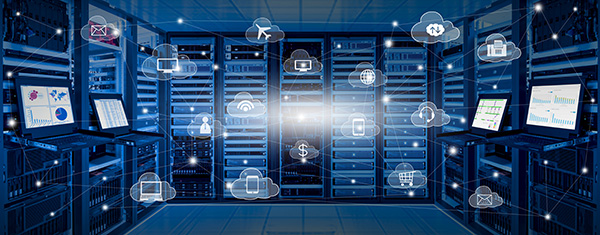According to a study by 451 Research group, over 90% of enterprises now use some form of cloud service. Businesses continue to leverage the features that Cloud Infrastructure and Platform Services (CIPS) offer. Several “as a service” platforms are taking advantage of these benefits, which is quite pertinent to DevOps.
DevOps and cloud architecture are two inseparable services. DevOps combines the tools and services for IT operations and software development to develop, improve, and deliver applications faster. The majority of cloud application projects use DevOps to streamline and enhance their application development and services.
Innovation in Cloud DevOps has also accelerated over the last year. That's why several enterprises are moving their workforce and infrastructure to the cloud. In a Gartner report, it is predicted that 45% of all IT spending on software, system infrastructure, and business process outsourcing will migrate from traditional solutions to the cloud.
Microsoft Azure, Google Cloud (GCP), and Amazon Web Services (AWS) are changing how enterprises and DevOps teams operate. Enterprises and businesses need to choose the best cloud computing platform to use for their development and operations.
This article compares the three leaders in cloud infrastructures for DevOps: AWS, Azure, and GCP.
What is AWS?
Amazon Web Services (AWS) is a robust Cloud and Infrastructure Platform Service. Enterprises use AWS to create secure, scalable, flexible, easy-to-use, and cost-effective cloud service solutions. A subsidiary of Amazon—the eCommerce giant, AWS holds the largest market share in IaaS and database PaaS offerings.
AWS offers several automated services, including computing, storage, data analytics, hosting, and several others. These services are designed to scale, build and deliver your products through AWS DevOps.
AWS DevOps provides developer tools that help you store, manage, build, test and deploy your source code. It carries out continuous integration or continuous delivery (CI/CD) using AWS CodePipeline.
Other AWS DevOps tools on offer include:
- AWS CodeBuild: An automated service that helps you compile your application source code, run tests on it, and gets it ready for deployment.
- AWS CodeDeploy: It helps you rapidly deploy and release new features for your application.
- AWS CodeStar: CodeStar gives you an all-in-one user interface to help you easily manage and carry out all application development in one place.
What is Azure?
Microsoft Azure is a cloud computing platform that combines Infrastructure as a Service (IaaS), Platform as a Service (PaaS), and Software as a Service (SaaS) as its offerings.
Some of Azure’s services include application development, storage, cloud migration, data analytics, and networking.
Azure provides DevOps services that help you rapidly plan, collaborate, and develop scalable applications. Azure DevOps tools include:
- Azure Board: Azure Board is an agile development tool that helps your DevOps team plan, track, and collaborate. Scrum and Kanban boards, integrated reporting, custom dashboards are some of its key offerings.
- Azure Pipeline: Azure Pipeline helps you manage your application’s continuous integration and continuous delivery. It automatically builds, tests, and rapidly deploys your applications.
- Azure Test Plans: It helps you test and deploy your applications manually or with exploratory testing solutions.
What is Google Cloud?
Google Cloud Platform (GCP) is a cloud service that helps you develop, deploy, deliver and manage applications. GCP provides a suite of products that you can use to gain business insights, develop faster apps, and collaborate better at a minimal cost.
Additionally, Google Cloud provides several API integrations such as Computer Vision, Natural Language Processing, and Machine learning.
Like Azure and AWS, Google Cloud also provides DevOps tools to help ship products faster and more efficiently. Some of these GCP DevOps tools include:
- Cloud Build: It helps you create custom workflows to test, build, and deploy applications on Google’s serverless CI/CD platform. Cloud Build also provides you with built-in integrations with Firebase, Google Kubernetes Function, and Cloud Functions.
- Cloud Console: Cloud Console can help you test, scale, deploy, and execute various other tasks on your applications using a web-based GUI.
- Operations Suite: GCP’s operations suite helps monitor and collect performance metrics, application logs, and traces. You can troubleshoot your applications, monitor application infrastructure, and get notifications and alerts on your application performance.
Comparing Cloud Service Providers from a DevOps Perspective
Gartner predicts that 40% or all enterprise workloads will be deployed on a Cloud Infrastructure Platform Service by 2023.
Businesses need to decide on the best cloud platform to employ for their applications. You may ask, what should I consider when choosing a cloud service for DevOps? Decisions on these can range from cost to infrastructure, location, platform services, and industry. We will be considering some of the primary factors for choosing a cloud service.
Market Share
According to a report by Canalys, the worldwide cloud service market share grew 33% in the last quarter of 2020. AWS—the pioneer of cloud computing—has the largest market share and capability offerings of all cloud computing services.
AWS market share was reported as 32% for 2020 with a revenue of $36.5 billion which was more than the next three cloud service providers combined. Azure holds a market share of 17%, while GCP’s market share is at 7%.
Industry Usage
Even though Google Cloud holds less market share than AWS and Azure, it showed remarkable growth among enterprises in 2019. According to Flexera’s state of the Cloud 2020 report, GCP had a 70% increase in adoption rate among enterprises in 2020.
Some of the major industries using Google Cloud include retail, telecommunications, media and entertainment, and software and internet companies.
A shift in most retail companies has propelled them towards considering Google Cloud and Azure as better cloud service options. Due to Amazon’s remarkable success and competition in eCommerce, Walmart, Target, and several other brick-and-mortar retailers choose Google Cloud and Azure to avoid having their data on a major rival’s platform.
AWS has over a million users, including fast growing-startups, big enterprises, and top government agencies in healthcare, finance, education, insurance, and media. Top users include the United States government, Netflix, LinkedIn, Twitch, and BBC.
Azure is an exciting option for companies willing to continue with existing Windows deployment and product usage. Azure also has the lion’s share of cloud usage for the financial sector in the U.S., Europe, the Middle East, and Africa. Some of the top users of Azure include Verizon, MSI Computer, LG Electronics, CenturyLink, Intel, and Adobe.
Security and Compliance
The core security features of the cloud revolve around: identity and access management, infrastructure protection, data protection, detective controls, and incident response.
AWS, as the dominant cloud provider, offers several tools and features for cloud security. Some of these features include API activity monitoring, Vulnerability Assessment, and other security alerts.
AWS offers one of the most comprehensive compliance support. Some AWS security standards and compliance certifications include FedRAMP, PCI-DSS, HIPAA/HITECH, and GDPR.
Google Cloud performs regular checks to ensure the best and most up-to-date security and compliance controls. Some of these Google Cloud compliance controls include Cloud Computing Compliance Controls Catalog, FedRamp, CSA STAR, EU Cloud Code of Conduct, and more.
Azure offers similar compliance and security certifications and features. Additionally, Azure offers industry-specific compliance controls for health, government, education, manufacturing, and finance.
Regional Coverage
You need to consider a data center location that is close to your target audience. Without a data center location close to you, you may have high latency issues with a disappointing user experience as your network usage grows.
AWS provides over 80 availability zones and spans 25 geographical regions with plans to add 15 additional Zones and 5 more AWS Regions.
Azure has the highest data center coverage for cloud services. It is available in over 54 regions encompassing 140 countries worldwide.
GCP covers 25 regions and 76 availability zones.
Pricing
Pricing is a huge factor for several enterprises when considering the best cloud service to choose from. However, prices are almost similar. AWS moved away from a by-the-hour billing to per-second pricing in its EC2 and EBS services. In this regard, it is now in line with Azure and Google Cloud.
You can take a look at the AWS pricing and pricing calculator. For Azure, you can calculate your application’s projected cloud price with an Azure price calculator. And here for Google Cloud.
Native Support for DevOps
These cloud services provide the tools for you to perform DevOps. Azure provides a suite of services for these. With Azure, you get a coherent set of tools that perform specific tasks. You have Azure Repositories for storing and reviewing code. It performs version control for your source codes. Other services include Azure Pipelines for CI/CD operations, Azure Boards for Agile management and task planning, and Azure Artifact to help you save pipeline run results.
With Google Cloud DevOps, you get Google Cloud Source Repository for your source code version control. Basically, it allows you to push and pull codes. That’s all. Other notable services on Google Cloud include Cloud Build for CI/CD, Cloud Console, and Operations Suites.
AWS has the most extensive set of tools for DevOps. AWS Codestar is a unique interface for you to set up CI/CD operations quickly. You can also create projects using CodePipeline, build with CodeBuild, and deploy with CodeDeploy modules. AWS also provides you with CodeCommit for version control.
Choosing a Cloud Service That Supports DevOps
Google Cloud, AWS, and Azure are all efficient cloud platforms for your DevOps. However, before you choose a cloud service provider, you should know the features or services your business needs. You should know how much you are willing to spend on cloud services.
You may want to ask, what is the best cloud computing service for DevOps? The answer is entirely up to you and what your organization needs.

 Alexander Fashakin
Alexander Fashakin




